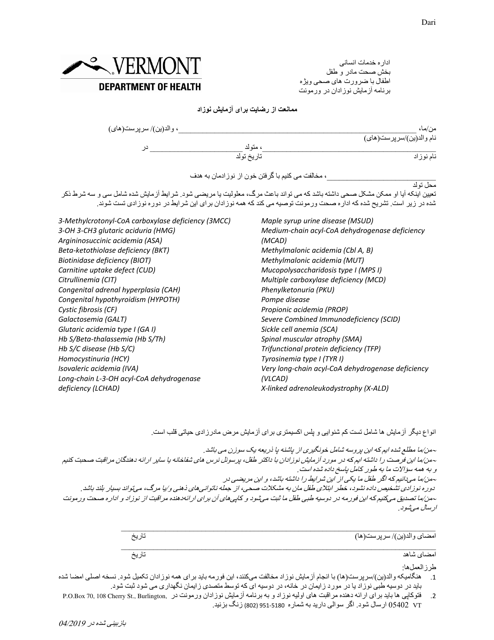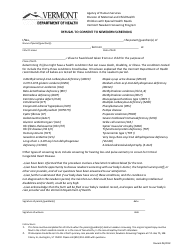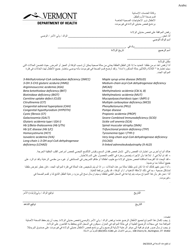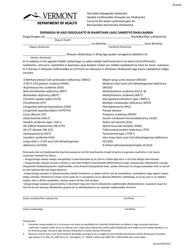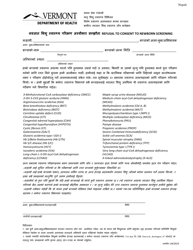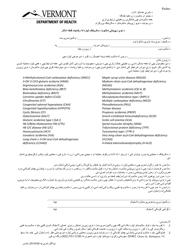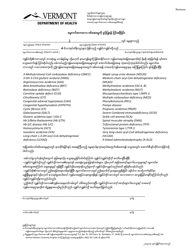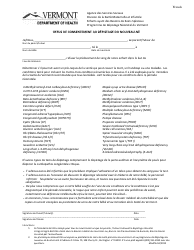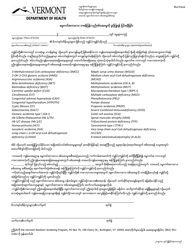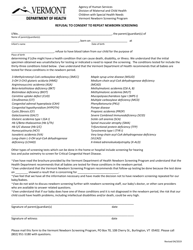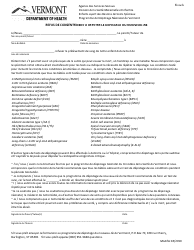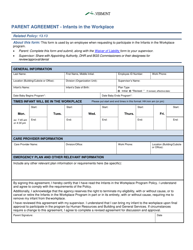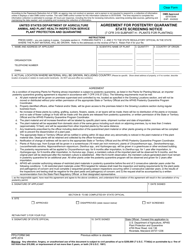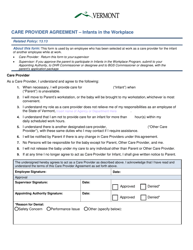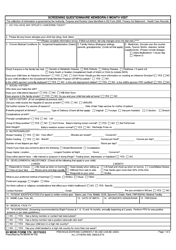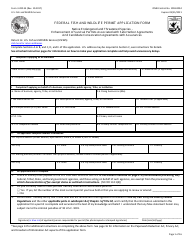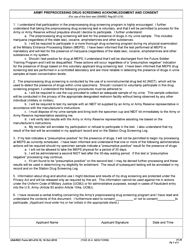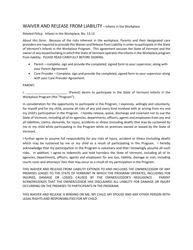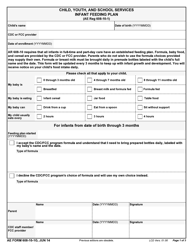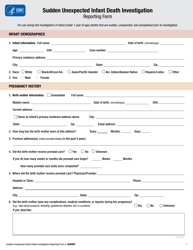Refusal to Consent to Newborn Screening - Vermont (Dari)
This is a legal document that was released by the Vermont Department of Health - a government authority operating within Vermont.
The document is provided in Dari.
FAQ
Q: What is newborn screening?
A: Newborn screening is a process of testing newborn babies for certain genetic, metabolic, and other disorders.
Q: Why is newborn screening important?
A: Newborn screening helps identify conditions that may not be apparent at birth but can potentially cause serious health problems.
Q: Is newborn screening mandatory in Vermont?
A: Yes, newborn screening is mandatory in Vermont.
Q: What does refusing to consent to newborn screening mean?
A: Refusing to consent to newborn screening means choosing not to have your baby's blood tested for potential disorders.
Q: Can I refuse newborn screening in Vermont?
A: Yes, parents have the right to refuse newborn screening in Vermont, but it is not recommended.
Q: What are the potential risks of refusing newborn screening?
A: The potential risks of refusing newborn screening include missing the opportunity to detect and treat serious medical conditions early.
Q: Are there any consequences for refusing newborn screening?
A: Refusing newborn screening may result in delayed diagnosis and treatment of certain conditions, which can lead to long-term health issues or disabilities for the baby.
Q: Can I change my decision about newborn screening after refusing?
A: Yes, you can change your decision about newborn screening even if you initially refused. You should inform your healthcare provider if you change your mind.
Form Details:
- Released on April 1, 2019;
- The latest edition currently provided by the Vermont Department of Health;
- Ready to use and print;
- Easy to customize;
- Compatible with most PDF-viewing applications;
Download a printable version of the form by clicking the link below or browse more documents and templates provided by the Vermont Department of Health.
